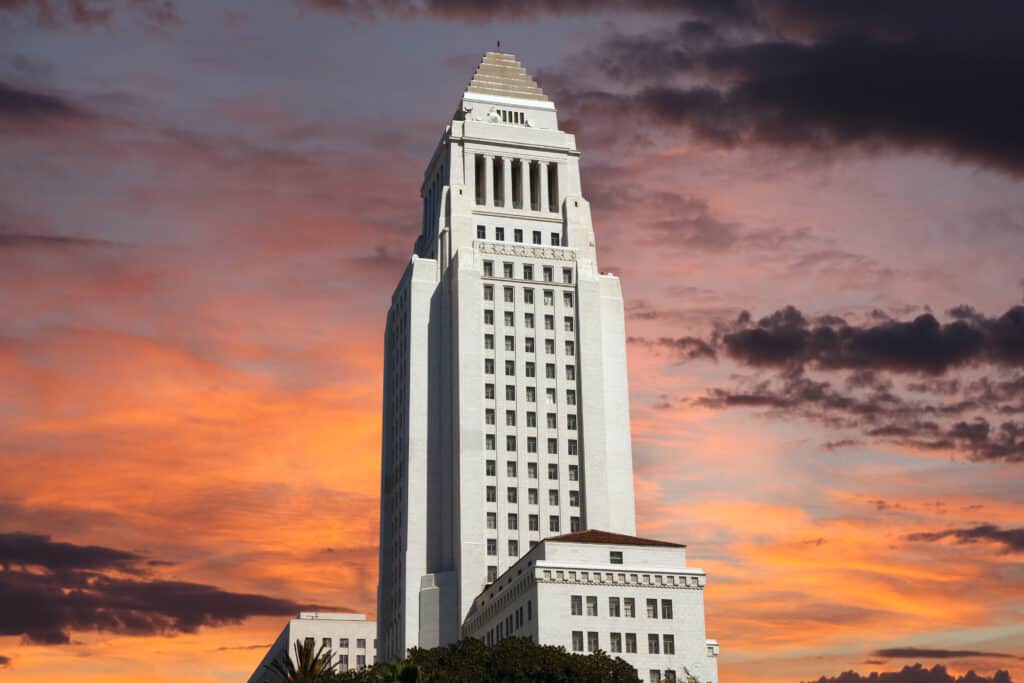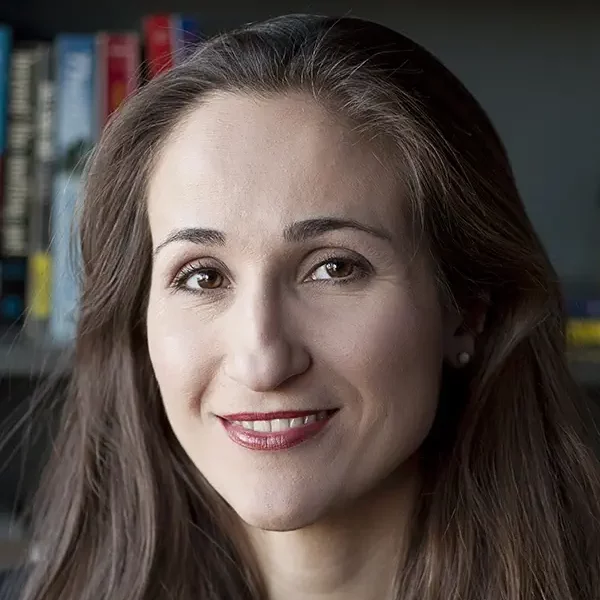
A leaked audio recording revealing racist remarks from three Los Angeles City Councilmembers devastated communities across the city, but it also provided an opportunity: In the wake of the political scandal, there were more open conversations happening about racism in politics.
Released in October, the explosive tape captured city leaders using racist and crude language to describe Black, Jewish, Armenian, Indigenous and gay people – all while plotting to solidify power through the city’s redistricting process.
Mindy Romero, director of the Center for Inclusive Democracy at the USC Sol Price School of Public Policy, didn’t want the chance for deeper conversations to slip away.
“We have a very long history of scandals erupting, but the conversation soon dies down and we kind of go back to the status quo,” Romero said. “This was a moment that we didn’t want to see pass.”
Romero quickly took action, organizing four online discussions that touched on difficult topics related to the secret recording. The “Behind Closed Doors” series brought together academics, politicians, journalists and grassroots community organizers.
In partnership with the California Black Freedom Fund, the Latino Community Foundation and the AAPI Civic Engagement Fund, the series explored the role of white supremacy ideology in politics, anti-Blackness among Latino and Asian communities and power grabs that occur during city redistricting.
The panels culminated last week with a conversation about how communities can move forward following the scandal.
To repair relations with communities, elected officials should lead conversations with residents from diverse backgrounds, commented Peggy Moore, principal and co-founder of Hope Action Change Consulting, during the final panel. She pointed to similar meetings organized by the city’s Civic + Human Rights and Equity Department.
“This begins the process of healing,” Moore said. “I think the more we have these conversations, the more we see each other, break bread with each other – the more that we see that we’re more alike and have more in common than not.”
Panelist and L.A. City Councilmember Eunisses Hernandez, who represents the city’s first district, said she’s pushing to improve accessibility to government, so the public is not left in the dark. That includes ensuring city departments publish materials in more languages and schedule public meetings outside business hours, so more residents can attend.
“That’s really what keeps people from not understanding what goes on in City Council,” Hernandez said.
The council tape scandal is not the first and won’t be the last time that communities will experience this level of racism and political manipulation, according to panelist Lian Cheun, executive director of Khmer Girls in Action. That makes it important for communities of color to build power and hold politicians and political systems accountable.
“The important lesson to me is to both leverage the political moment to demand better services and programs for our community… while not letting it distract from other important work,” she said. “It’s important to continue to demand the repairing of harm that has been done to communities.”

Romero hopes the recorded panel discussions—accessible through the USC Price School’s YouTube channel—will spark further dialogue about these important issues.
“We need more conversations like this, period,” Romero said. “There are currently many people talking about racism and politics, but it’s not enough. We wanted to play some small role to encourage more discussion, along with real action.”